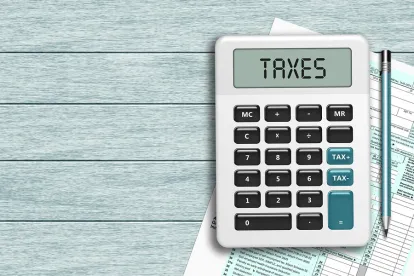In this roundup, we look at some of the key cases in corporate and real estate tax from December 2021 to January 2022, including the value–added tax (VAT) decisions on input VAT that was not passed on to final consumers and the VAT treatment of licences to occupy land.
Zipvit: There Can Be No Input VAT Deduction for VAT That Is Not Charged
On 13 January 2022, the Court of Justice of the European Union (CJEU) held that where a contract for services provides for VAT to be charged in addition to the fee for the services, a taxable person cannot claim to deduct an amount of VAT for which it has not been charged and which it has not passed on to the final consumer.
Royal Mail supplied postal services to Zipvit Ltd (Zipvit) for its mail–order vitamins and minerals business, but these supplies were mistakenly regarded as exempt from VAT so that invoices were stated to be exclusive of VAT. When this mistake was uncovered, Zipvit sought to recover input VAT on the basis that the sums it paid to Royal Mail included VAT. After several appeals, the UK Supreme Court referred the matter to the CJEU for direction.
The CJEU dismissed Zipvit's application, holding that Zipvit's case was different from those contracts which are silent on VAT. The price Zipvit paid for the postal services was VAT exclusive, as provided in its contract with Royal Mail. Since the contract did not incorporate the VAT element, Zipvit could not be regarded as having paid VAT when that amount was not charged to it and was not passed on to its customers.
Implication for Taxpayers and Practitioners
This decision means that where a price is expressed to be exclusive of VAT and the supplier does not charge VAT in addition to its fee, but it is subsequently shown that the supply was taxable, the recipient of the supply cannot claim input VAT unless additional VAT is actually charged to it by the supplier. The CJEU, however, left open the question of whether holding an invoice stating the amount of VAT charged is a necessary condition for a valid input tax claim.
The decision can be viewed here.
City YMCA: Supply of Accommodation for Homeless People Subject to VAT on Reduced Value
On 17 December 2021, the First-tier Tribunal (FTT) held that a hostel accommodation provided to homeless people was a supply of accommodation in a similar establishment to a hotel for VAT purposes, which meant that the supply was subject to the reduced value rule under paragraph 9 of schedule 6 to the Value Added Tax Act (VATA) 1994.
The appellant, City YMCA London, a registered charity, operated a hostel that provided accommodation to homeless young people aged between 16 and 35. It argued that the supply of its accommodation was a licence to occupy land and, in principle, fell within the scope of the land exemption. HMRC contended that the supply did not constitute a supply of land (or more properly a licence to occupy land) within the meaning of the land exemption, and should therefore be subject to VAT at the standard rate on its full value.
The FTT agreed with City YMCA, holding that the supply was, in principle, a licence to occupy land. This characterisation of the supply was not affected by the "added value" elements that came with the accommodation, such as access to communal facilities, signposting, and a degree of oversight and control. The FTT also concluded that the supply of the hostel was similar to that of a hotel due to the temporary nature of the accommodation. It did not matter that the accommodation was not tendered to the general public nor was it relevant that there was a selection process for personal suitability of potential residents.
Implication for Taxpayers and Practitioners
This case will be of direct interest to taxpayers which operate similar models, as it ensures that they can receive full input tax recovery with a lower output tax charge in situations where the reduced value rule under paragraph 9 of schedule 6A applies (e.g., where hotel accommodation or similar is occupied by an individual for more than four weeks and not at the individual's expense). But broadly, this case is relevant for its analysis of licences to occupy land and whether "added value" elements provided alongside land are enough to take any relevant supply outside of exemption.
The decision can be viewed here.
Hotel La Tour: VAT on the Cost of Professional Services Incurred in Connection With the Sale of Shares Is Recoverable
On 3 December 2021, the FTT held that a company was entitled to recover VAT on the cost of professional services incurred in connection with the sale of shares in its subsidiary.
Hotel La Tour Ltd (HLT) engaged various companies to provide professional services to assist with the sale of its subsidiary, Hotel La Tour Birmingham Ltd (Target), so it could obtain the highest sales price available to pay towards the development of a new hotel project. Following the completion of the sale, HLT claimed for the input VAT it incurred on the relevant professional fees, but its claim was rejected by HMRC on the basis that the sale of the Target was an exempt supply for VAT purposes. HMRC further argued that the share sale (an exempt transaction) disconnected the required "direct and immediate" link between the input tax that was being claimed and HLT's taxable hotel development activity.
But the FTT disagreed, noting, as the Supreme Court decided in Frank A Smart & Son Ltd v HMRC [2019] UKSC 39, that input tax incurred on costs associated with a disposal of shares is deductible if:
-
the sale is a fundraising transaction objectively entered into for the purpose of an economic activity;
-
the funds are used for taxable supplies; and
-
the costs on which the input tax was incurred are not incorporated in the price of the shares being sold, but are cost components of downstream taxable supplies. (This condition will be satisfied even if the relevant costs are incurred to maximise the selling price).
Objectively ascertained, the FTT found that HLT had sold the shares in the Target for the best price it could achieve to fund a taxable hotel activity (i.e., the development of the new hotel) and the professional fees it incurred to sell the shares were not reflected in the share price, but were rather paid for out of the proceeds of the sale. These costs reduced the amount available for HLT's taxable activity and so were a cost of that taxable activity. The FTT, therefore, concluded that the VAT on the costs incurred to sell the shares could be recovered on the basis that there was a direct and immediate link between those costs and the taxable hotel development activity the shares were sold to fund.
Implication for Taxpayers and Practitioners
This case supports the view that, provided the proceeds of a sale of shares are used to fund general overheads or specific taxable activities, and the costs incurred to sell the shares are not incorporated in the selling price, the VAT treatment of the sale of the shares will not in itself prevent VAT on the costs from being recovered. But broadly, this case provides some helpful guidance on the way to draft a share sale documentation when the recovery of input tax is a concern.
The decision can be viewed here.
Ugo Onwumelu, a trainee in the Tax practice, contributed to this advisory.




 />i
/>i
